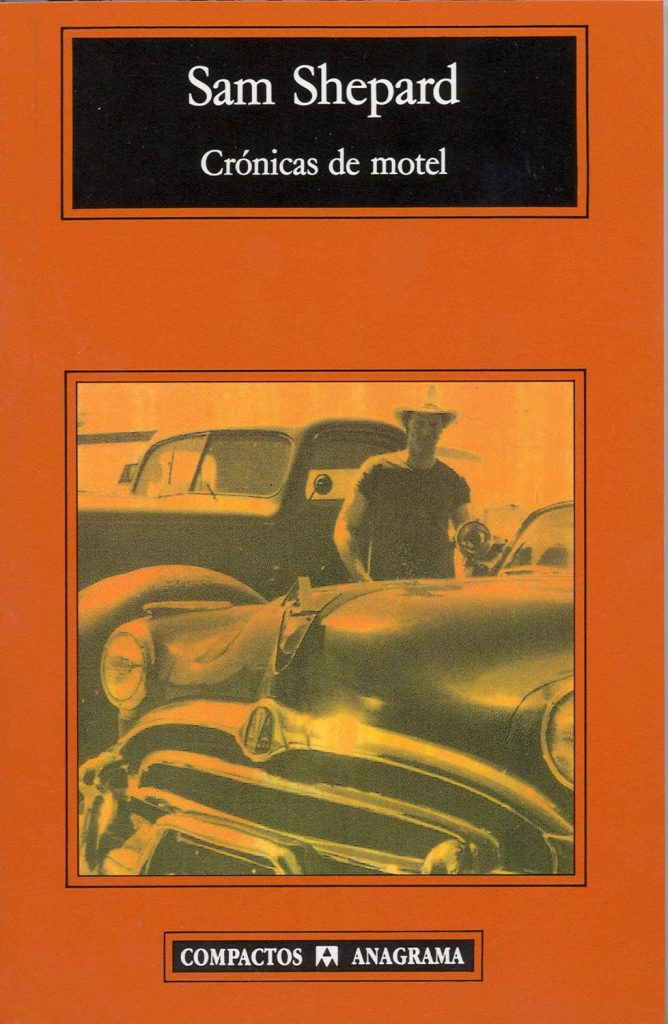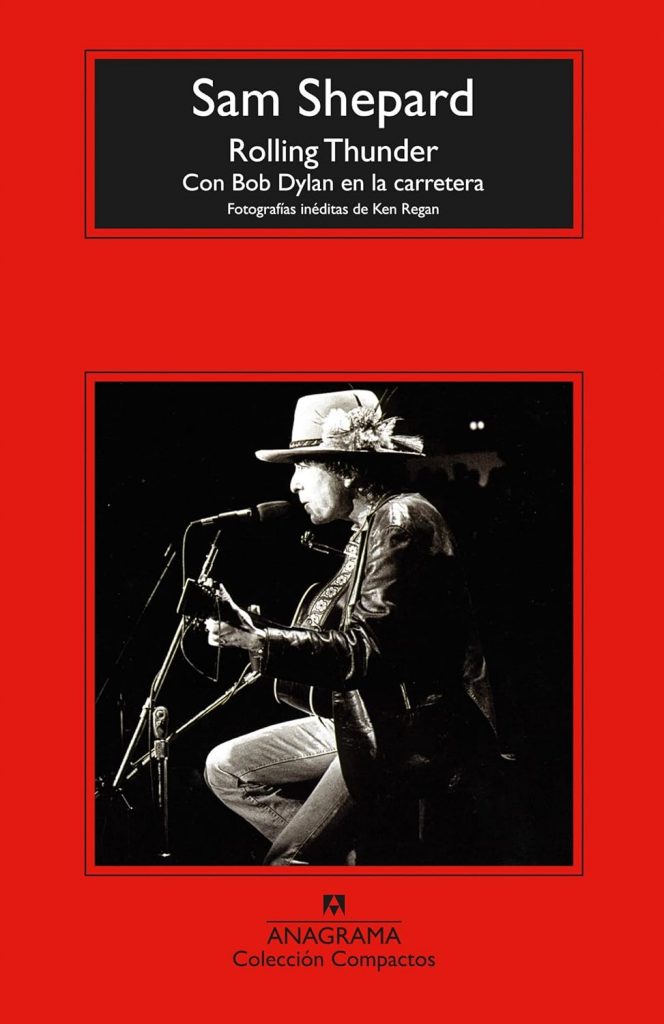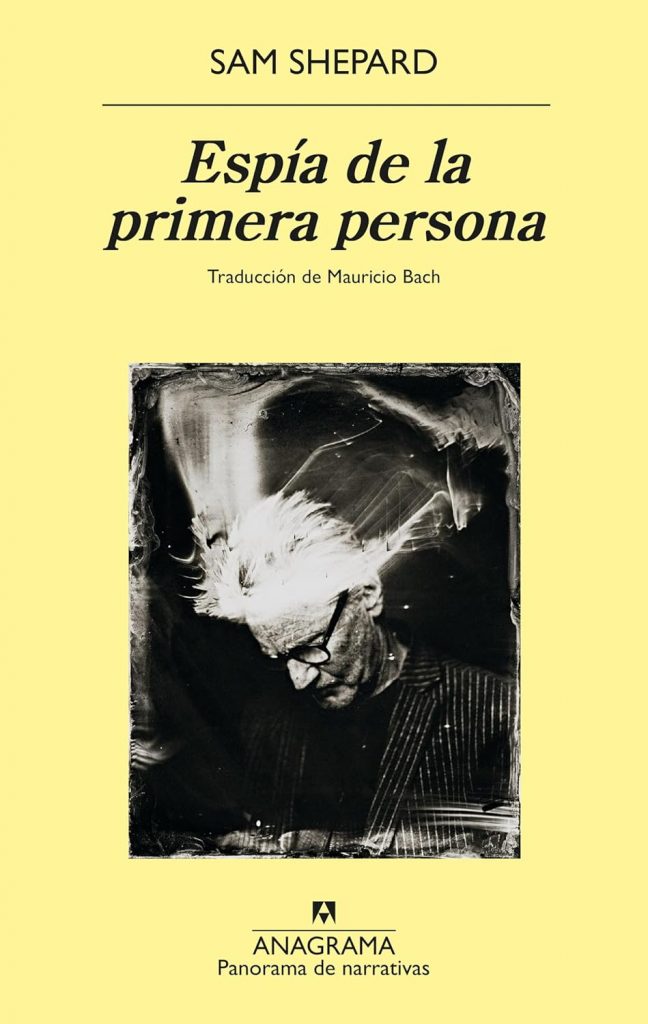In the XNUMXth century, several illustrious heirs of Shakespeare were brought together for the glory of the Anglo-Saxon language par excellence. On the one hand Samuel Beckett, Tennessee Williams and surely in a more dispersed way Sam Shepard. All of them revived the Anglo-Saxon theater with new vigor adjusted to the realities of an era full of changes, including those forced by pushes from creative spaces, but also from the theater.
But as I say, Shepard was more dispersed, more of letting himself be carried away by muses that could lead him to acting or music. And yet it was dramaturgy that gave him the most glory in his time. Of course, the most curious thing of all is that today Shepard's most requested books are those that convey his experiences and impressions to us as chronicles of a fascinating time, a time where creators were social beacons towards the avant-garde and change. , with its commitments but also with its sins, its excesses, vices and eccentricities...
Top 3 recommended books by Sam Shepard
Motel Chronicles
There was a time, the XNUMXth century made in the USA, in which authors surpassed the legend of their works, something like what happened to Truman Capote, Hemingway, Tom wolfe, Bukowski and Burroughs, to name a few. And so his lives became extensions of his novels that everyone wanted to know. Nowadays writers are less myth and more just narrative production. That had, without a doubt, more charm... Sam Shepard also wrote about his experiences that were consumed with vehemence given his great charisma.
The roads, the cars, the solitude and the adventure soak these motel chronicles, a book of "broken stories", autobiographical fragments, stories and poems admirably served by quick and concise writing.
motel chronicles was the starting point of París, Texas: «the film that I had wanted to make in the United States was there, in that language, those words, that American emotion. Not as a script, but as an atmosphere, a sense of observation, a kind of truth," said Wim Wenders.
me inside
As a playwright, Sam shepard he knew how to transfer the most splendid art of the monologue to this novel. The history of theater, as a scenic art, is determined by great soliloquies that point to immortality from the simplicity of the character, of the human faced with his destiny.
From the Greeks to Shakespeare, Calderón de la Barca Valle Inclán or Samuel Beckett; the greatest glory of theater has passed through a lonely protagonist who directly evokes tragedy ...
It is about extolling our ridiculous existence with respect to a vast world, a cosmos that offers infinity as any answer to a simple glance at the celestial dome. The theater has tried to give voice and interpretation to those little questions about us that, deep down, we would like to throw into the immensity that surrounds us in case someone could attend to the claim of our contradictions and guilt. Immortality is a small text that exposes a simple question posed in millions of questions about what we are.
The best thing about this book is that the protagonist on whom the focus falls in the silent scene is ourselves. Because Sam Shepard also invites us to enjoy his acting profession.
We become actors in the skin of another. Once we empathize with the guy who remains in a bed, in the throes of a disturbing sleeplessness, we enter into that search for what we are from the simplest and most everyday, from our most deeply rooted conflicts that make it difficult to recover the easy sleep of the child we once harbored.
And although I get metaphysical, it is not about finding great musings in this novel, perhaps dreamlike approaches about love, family, guilt.
It is true that the case of the protagonist of the novel deals with a particular life, but the shadows of his thoughts between consciousness and unconsciousness concern us all.
The particular soliloquy from the sleeping candle introduces us to a dream owner who probably loved the wrong person, which cost him to renounce the figure of his father, who also loved that same woman: Felicity. A recurring aspect within the entire narrative, a thread that unites everything, as parenthood and motherhood always link.
Sam Shepard lying on his bed, trying to move from his guilt and resentment to restful sleep. Sam Shepard climbed back onto the stage of the theater he loved so much. A novel turned into the Shepard who once dreamed of being Hamlet.
Rolling Thunder
Live it to tell it. From within, from that core that tries to drag everything in its path. A countercultural movement that shook the United States and that Sam Shepard transferred to these pages full of sound and fury, as Faulkner would say...
In the fall of 1975, Bob Dylan and his Rolling Thunder Revue – a show that Dylan had projected as a mix of happening and traveling circus – toured twenty-two cities in the northeastern United States. The arrest of the boxer Hurricane Carter, apparently for racist reasons, was the trigger for this tour, which began with improvised concerts in small stages in New England.
To the perplexity of a provincial audience, a band made up of world-famous musicians reinvented the American musical tradition, the poets recited their verses and all the participants went on stage in costume, while the hand-held cameras did not lose any detail. There were Joni Mitchell, T-Bone Burnett, Allen Ginsberg, Mick Ronson, Joan Baez, Arlo Guthrie, Ramblin' Jack Elliot, Roger McGuinn and Muhammad Ali. And Sam Shepard was also there to write on the fly the script for a Fellinesque and surreal film that would come out of the tour itself.
That script never materialized, but Shepard wrote a chronicle of that trip, a logbook of the Rolling Thunder Revue and life on the road. On that traveling stage and in this book, Jewish and Mexican reminiscences are intermingled with English poetry, cowboy-slang with Indian myths (hence the name of the Tour), Catholic imagery with the blues...
This book, which was first published in 1977 and has become a classic of rock literature, is the complete opposite of a fan album: it is a diary made up of observations from the eye of the hurricane.
Other recommended books by Sam Shepard
first person spy
Like that astronaut lost in space in Kubrick's Odyssey, Shepard also tries to give us testimony of everything, of the sum of anecdotes that can give meaning to existence, between memories and flashes of farewell like falls towards the last dream.
The literary testament of Sam Shepard, written in the last months of his life, when a degenerative disease was taking over his body. Faced with this situation, the writer stood up, in a last gesture of resistance through writing. The result was this short, fragmentary, elliptical, radical, enigmatic and dazzling novel.
Someone spies on someone: they observe across the street a man who remains sitting in a rocking chair, talking to himself and receiving attention from his loved ones. Someone evokes memories and tells stories: a strange party with camels in the middle of the Arizona desert; a great-aunt's husband whose ear was bitten off; a pier on the coast; a horse that is shot in the middle of a race; a clinic in the middle of the desert surrounded by gardens with sculptures; the story of the grandparents who left when their house flooded; the story of Pancho Villa when he was assassinated after the revolution; a mattress on the floor in New York's Lower East Side; Vietnam and Watergate; the escape from Alcatraz; a group of Mexican immigrants waiting for work on a corner…
Border territories, landscapes of deep America, desert areas, California beaches and New York streets: the map or the puzzle or the mosaic of a life. A work of captivating beauty, a farewell poem in the form of a novel.




